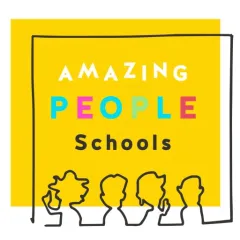Written by Selena Whitehead – Education Team Manager
Bring new role models into your classroom this LGBT+ History Month. Use our free resource to start the discussion with your students. Explore the stories of these amazing people and learn more about what they have achieved and how they have turned adversity into triumph.

You can’t be it if you can’t see it
Empower your students to identify and develop a deeper understanding of character, which can then lead to them actively using these strengths in real life, becoming more empathetic and open-minded to the prejudice and issues faced by LGBT+ people.
Celebrating LGBT+ Achievers

April Ashley
Trans trailblazer who was a model and actress, she was the second person in the UK to have gender reassignment surgery. At that time secrecy was essential as it was illegal in the UK under the so-called ‘mayhem’ laws, which involved the deliberate maiming of another person.
At the time of her surgery she said: “I know more than anyone how people can judge, but I also know if you are true to yourself, that’s all that matters.”
April Ashley
Task: Ask your students to research the laws which meant it was illegal to conduct gender reassignment surgery in the UK in the mid twentieth century. What other laws have impacted LGBT+ people?

Hafsa Qureshi
Named by Stonewall as a role model, Hafsa is a bisexual Muslim woman who works to raise visibility and awareness around LGBT+ people of faith.
Image: Twitter: @MsHafsaQureshi
Task: Courage – Being an ally means not only not judging someone yourself, but also sticking up for them if they are being bullied. Can you find examples of people from outside the LGBT+ community who acted as allies in action?
Tom Daley
The British Olympian diver has been in the public eye since making his Olympic debut at the tender age of 14. He was bullied in school and feared the repercussions of revealing his sexuality. He came out as gay in 2013 and is now married and a father to his son Robert Ray Black-Daley. Named after Tom’s Dad, Rob, who sadly passed away from a brain tumour in 2011.

Tom has gone on to win Olympic medals, including Gold in the 2020 Tokyo Olympics. He also works with numerous charities, including The Brain Tumour Charity and London Pride.
“I feel incredibly proud to say I am a gay man and also an Olympic champion. When I was younger, I thought I was never going to be anything or achieve anything because of who I was. To be an Olympic champion now shows that you can achieve anything”.
Tom Daley
Task: Can your students name the character strengths Tom Daley might have needed to use to help him through tough times in his personal and professional life? Have they experienced any similar issues themselves?

Stephen Fry
Despite a difficult childhood, he became a famous actor, writer and comedian. He knew he was gay from birth and is an active advocate for gay rights. He also has bipolar disorder (leading to extreme mood changes), and campaigns for awareness of this condition.
Task: Courage – Being an ally means not judging someone yourself and sticking up for them if they are being bullied. How would you support someone who was being bullied, just for being themselves?
Dame Kelly Holmes
Coming out only after she finished competing; this former Gold Olympic Athletic Champion said she was “finally free to be me”. She had served in the army where being gay was illegal, and she worried about being shunned.

Task: Open-mindedness – Spend some time chatting with a friend or relative, or listen to the story of an Amazing Person, and think about how their life-experiences are similar or different to your own.

Laverne Cox
She is an African American actor who has broken many barriers with her work and LGBT+ activism. She is the first transgender person to be nominated for an Emmy award and the first to have a waxwork made of her in Madame Tussauds.
Task: Humility – Keeping a modest opinion of yourself involves listening to others and understanding different words and terms. What does LGBT+ stand for?
Use Role Models to Explore Character
This blog set out to explore why it is important to raise awareness of the achievements of key trailblazers. Bringing diversity into the classroom and telling the stories of different people increases empathy and tolerance. Using those stories to explore character is a key tool in delving into different character strengths.
Amazing People Schools primarily uses historical role models to explore not only their achievements but the character strengths that helped them overcome adversity and challenges. Our story library is packed with representatives from around the world, different walks of life and from different points in history. There are two key benefits using role models: as a way of bringing diversity into the classroom and secondly, they’re an ideal way to explore character strengths.
Through studying people, students can immerse themselves in their stories and explore the character strengths they recognise. Once students are familiar with examples of integrity, courage and resilience the conversation is easier to bring into everyday life. Our free resource provides examples of contemporary figures as well as crucially important activities and questions on character and identity.
If you like what you see in our blogs, sign up for free access to all our incredible resources.

